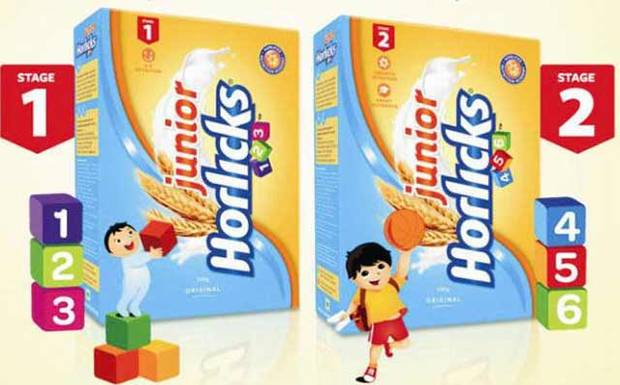A laboratory test has found a Horlicks brand has no DHA, an Omega 3 fatty acid that helps brain development, contrary to claims by the company producing it.
Rezaul Karim, a senior researcher at the Bangladesh Council of Scientific and Industrial Research – popularly called Science Laboratory – confirmed that his test found no trace of the nutrient in the brand.
GlaxoSmithKline, manufacturer of Horlicks, has brushed off the findings claiming that all ‘New Junior Horlicks with DHA’ contain the nutrient, present in sea fish.
Docosahexaenoic Acid is a primary Omega 3 fatty acid found in brain, retina and skin and is often used to fortify baby food.
The national scientific research council regularly tests different food products as part of its regular work, said Karim, who also directs “Strengthening Analytical and Microbial Laboratories Project”.
“We tested Hilsha fish and Horlicks as part of that process,” he explained.
bdnews24.com secured a raw copy of the lab test report which found that there was 0.57 percent DHA in Hilsha oil.
This oil constitutes about one-fourth of the Hilsha’s weight.
The New Junior Horlicks with DHA, however, yielded only 0.55 grammes of oil in every 40 grammes but the test did not find any trace of DHA in Horlicks.
Karim, who graduated in chemical engineering from the Bangladesh University of Engineering and Technology, was himself a regular consumer of Horlicks, a popular household drink.
He noticed that the jar of Horlicks did not provide any percentage of DHA although it claimed to have the nutrient. “That got me thinking.”
Karim then brought that brand of Horlicks under the lab testing scheme at Bangladesh’s premier research institute.
He said the test was conducted on Sep 13, 2013.
But Lokman Hossain, an official with GlaxoSmithKline, said this could not be the case and claimed that GSK products are regularly tested in their “own laboratories”.
Having seen a copy of the test report, Hosaain said it only stated ‘Horlicks’ and not ‘Junior Horlicks’, which is supposed to have the nutrient.
Karim clarified that he had tested the brand himself and clearly remembers the jar of ‘New Junior Horlicks with DHA’.
“We only wrote down Horlicks instead of the full name of the brand because that copy of the test was for internal use and it was a raw copy of the test result.”
The GSK official also enquired about the batch, production date and name of the marketing agency, without which he said he could not say anything for sure.
He said the new DHA-fortified Horlicks was marketed last year for the first time. “It was still in the formulation stage before then.”
Head of the government’s Directorate Of National Consumer Rights Protection Abul Hossain Mian said : “Such deceit calls for strong punishment. But we cannot act on this until there is a complaint against the product.”
According to the Consumer-Right Protection Act, deceiving consumers is punishable by a year’s imprisonment and would attract a fine of at least Tk 50,000.
However, the consumer rights directorate does not have the authority to revoke licences of such organisations.
Kamal Prasad Das, a director at the Bangladesh Standards and Testing Institution (BSTI), the consumer product regulator, explained that there was a list of items that his agency had put under scrutiny.
“Horlicks is not in our list. Hence, we cannot really comment on this matter.”
Besides Horlicks, the GSK also manufactures energy drink brands like Maltova, Viva and Boost.
bdnews24.com had reported in 2008 that the advertisement watchdog of UK banned a Horlicks slogan that claimed children grew taller, stronger and ran faster with regular doses of that fortified drink.
Britain’s Advertising Standards Authority had ruled that the adverts were misleading and inaccurate, and should not be repeated, according to media reports.
Source: Bd news24










